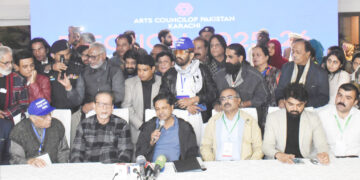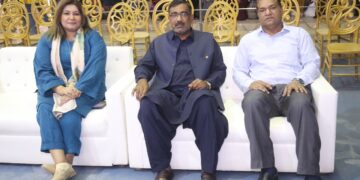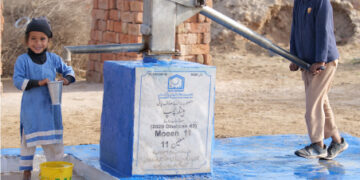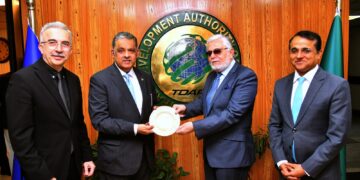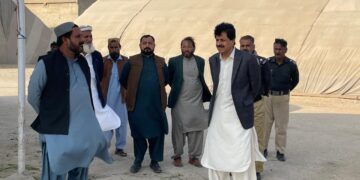KARACHI : December 11, 2023: The second Social Sciences Winter School, jointly organized by the Institute of Business Administration (IBA), Karachi and the Centre for South Asian and Himalayan Studies in Paris (CESAH, CNRS- EHESS) commenced at the IBA City Campus. The theme of the second Winter School is ‘Environmental Change, Societies at Risk and Social Vulnerabilities in South Asia’. Running from December 11 to 15, the school will try to address the issues at the interface of environmental change, societies at risk and social vulnerabilities with different thematic focus, scales of interpretation, theoretical questioning and methodological frameworks, and in interaction with various local and international stakeholders.
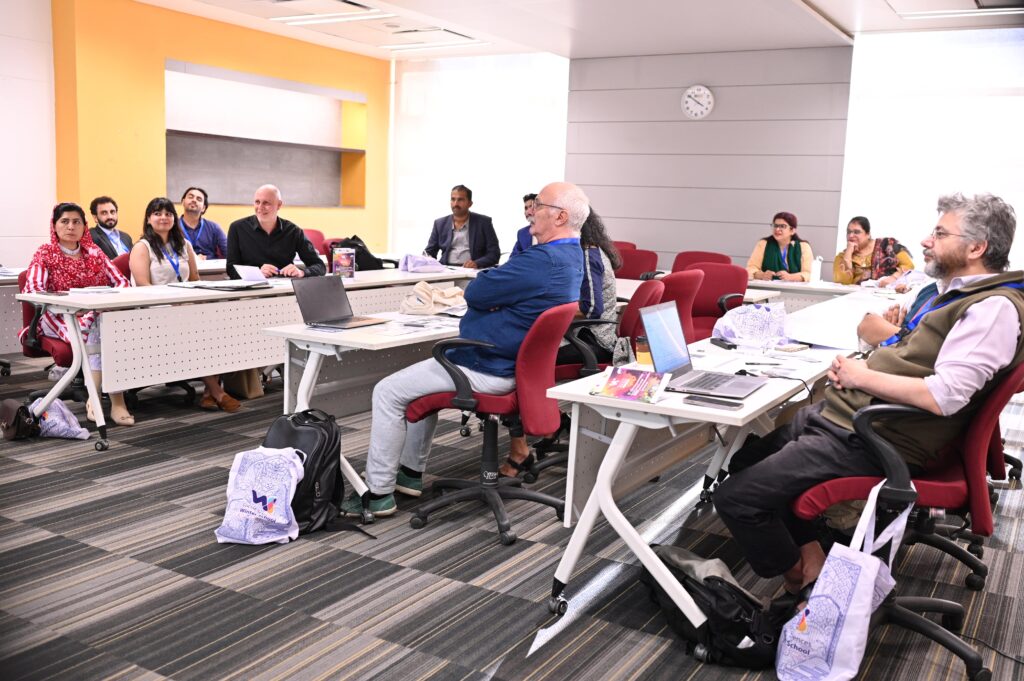

Dr. S Akbar Zaidi, Executive Director, IBA and one of the organizers of the Winter School opened the session by discussing the importance of collaboration between IBA and CESAH on such a key theme that will help propose indigenous solutions to help communities fight climate change. He mentioned that about 46 participants had joined the school from different locations and multidisciplinary fields to learn more about environmental challenges and social risks. He mentioned how South Asia is one of the most effected regions by climate change.
His speech was followed by Dr. Remy Delage, Research Scholar for CESAH (CNRS- EHESS) and organizer of the school. He discussed how the Winter School was “A unique training setup that brings together scholars and participants from various backgrounds so as to address societal challenges through the prism of social sciences”.
He further elaborated on the three workshops that were offered during the second Social Sciences Winter School:


Workshop 1 – Urban infrastructures, natural hazards and risk responses through uses of geotechnologies,
Workshop 2 – Dynamics of socio?ecosystems, local knowledge and adaptation strategies to climate risk and Workshop 3 – Historical and sociological approaches to environmental studies. He ended his speech in the hope that more such collaborations would continue between the two countries in the coming years.
Dr. Michel Boivin, another prominent research scholar of CESAH (CNRS-EHESS), mentioned “I am delighted to work with IBA to co-organize the second winter school in social sciences and the topic we have selected this year
is of great importance since it is related to climate change and this afternoon, we had the opportunity to speak to our workshop people. What is fascinating is that despite being the organizers we will learn a lot from each other in these workshops. So, it’s extremely exciting to discuss our knowledge related to climate change and environmental risks”.
The first keynote speech was by Mr. Arif Hasan, Architect and Chairperson, Karachi Urban Resource Centre, who delivered the speech titled, ‘Karachi: A Society in Flux’. Using observations from his past work of 40 years, Mr. Hasan focused not only on the technical affects of climate change, but also on the effects of climate change on the social relations of the city. He mentioned that Karachi is a unique city where 18 languages are spoken and in the larger context of society Mr. Hasan’s highlighted how usually one talks about Karachi’s physical infrastructure and inappropriate land use. In the process, Karachi’s communities, changing class boundaries, the emergence of younger generations, and a clash of values between different groups and generations get overlooked. His talk brought these contradictions into focus and related them to the larger context of society and the pivotal role that the search for security in a
supposedly violent city determines in settlement patterns.
Additional plenary sessions were also organized to explore different themes unique to each workshop. Speakers included Dr. Nausheen H. Anwar, Professor City and Regional Planning at the IBA and Director of Karachi Urban Lab (KUL), who mentioned that Pakistan ranks in the top ten countries that are vulnerable to extreme heat and emphasized on the multi-faceted risks and serious health implications of extreme heat to the communities in the Global South. She concluded her speech by underscoring that steps have been taken to manage the crisis caused by extreme heat. Karachi is the first city in Pakistan that produced its own heat management plan shortly after the first heat wave in 2015. She emphasized that we need to take a comprehensive approach for policy making as different policies will work in different contexts.
This was followed by speeches by Dr. Sylvie Fanchette, Geographer on highly populated deltas facing climate and environmental changes: adaptation challenges, which focused on how deltas have a long record of adapting to natural hazards and accustomed to being highly exposed to environmental risks. But they are among the most affected by climate and environmental changes because they are low lying areas, host high density of vulnerable population affected by hazards.
Their future depends on the nature of negotiations among riverine countries and local policy, and on how they are integrated in globalization and coastalisation of their economies.
Dr Bishawjit Mallick, Associate Professor Climate Change and International Development Studies, Faculty of Geosciences, Utrecht University spoke on Voluntary (non-)migration and Environmental Risk. He mentioned ‘voluntary non-migration’ is a largely under-researched topic, especially within the climate change adaptation discourse and has increasingly come to the attention of scientists and policymakers for sustainable adaptation planning. So far, there exists hardly any conceptual and methodical guidelines to study environmental non-migration.
Aimed at students, emerging scholars and young professionals, the winter school will use advanced
methodological and technological tools to provide intensive training to tackle environmental challenges from different angles and to explore the nexus between Environmental Change, Societies at Risk and Social Vulnerabilities.
Multidisciplinary workshops like these impart valuable skills and prepare participants to use digital humanities and geotechnologies to measure the impact of climate change on the organization of human societies, such as natural disasters (earthquakes, floods, human mobilities) and risk responses, the analysis of discourses and ideological corpuses determining and guiding public policies in the field of urban planning.





